HBA at the World Economic Forum 2025 in Davos
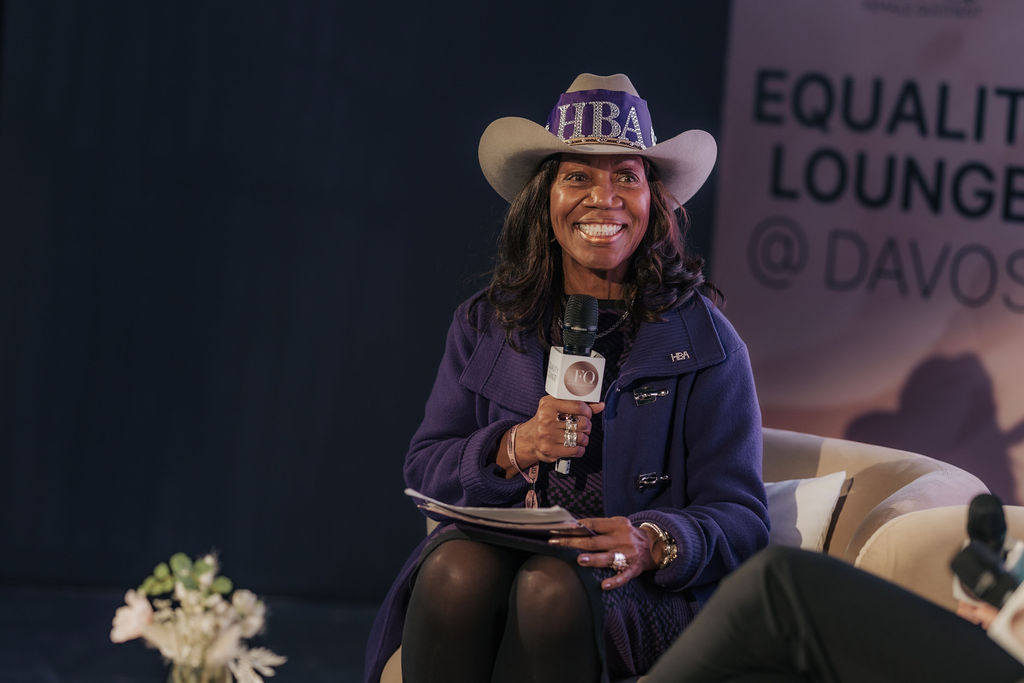
Collaboration for the Intelligent Age
This year’s World Economic Forum (WEF) Annual Meeting in the small Swiss village of Davos was themed “Collaboration for the Intelligent Age.” As expected, the WEF brought together an impressive roster of world and business leaders, decision-makers, influencers, and opinion leaders from across the globe. Some of the larger themes discussed at the Forum this year centered around artificial intelligence (AI) and its impact on disparities in health and education, as well as AI’s potential to support global growth. The WEF and the McKinsey Health Institute also made women’s health disparities a priority.
Sharing that priority, the Healthcare Businesswomen’s Association (HBA) once again partnered with The Female Quotient (FQ) to bring together leaders from the HBA’s corporate partners and other global experts to discuss the role of women in healthcare, the state of women’s health, and where improvements are needed to positively impact the lives of women and the bottom line. This year, the FQ’s “Equality Lounge at Davos” hosted numerous panel discussions focused on a wide range of topics related to gender equity.
The HBA moderated four of the FQ Equality Lounge panels, incorporating groundbreaking findings from two surveys that the HBA Think Tank conducted together with FemTechnology, a company committed to advancing women innovators and women’s health. The first set of findings come from a global physicians survey that gathered insights from 200 physicians in the United States, Germany, Brazil, Thailand, Egypt, and Morocco. From diverse practice settings, these specialist physicians offered a broad perspective on healthcare delivery across oncology, ophthalmology, endocrinology, cardiology, and neurology.
The global physicians survey found that:
- More than 80% of physicians observe sex differences in disease progression and treatment response, yet less than 30% feel equipped with resources to address them.
- More than 53% of responding physicians cited insufficient sex and gender-specific research and treatment guidelines as a major concern in their ability to deliver clinical care.
- Nearly 47% acknowledged that systemic biases, including unconscious gender stereotypes, undermine the quality of care their patients receive.
The women in the workplace survey gathered insights from more than 1,000 female employees working in the healthcare sector, covering 42 countries and six continents. This survey aimed to better understand women’s authentic experiences and pressing needs, highlighting that women’s health is a corporate priority with substantial impacts on productivity and financial well-being—for both women and the companies for which they work.
The global women in the workplace survey found that:
- 70% of respondents reported losing 1 to 5 days of productivity in the past month due to women’s health issues.
- 61% of respondents indicated they’d taken time off due to women’s health conditions.
- Only 10.14% of respondents agreed that their employer provides adequate education and resources on women's health issues affecting work.
- 76% of respondents indicated interest in a tool provided by their employer that would facilitate their ability to navigate women’s health.
"Women’s health is a business imperative," said Mary Stutts, CEO of the HBA. "With women making up nearly 70% of the global healthcare workforce, their success is critical to the industry's innovation and sustainability. Yet, gaps in support undermine engagement, retention, and organizational outcomes. Addressing these gaps is not just the right thing to do –it’s a necessity.”
The HBA curated four powerful panel discussions in Davos. The first, titled “From Innovation to Impact: Leveraging Physician Insights to Advance Women’s Health and Commercialize Innovative Products” on Monday, 20 January, was moderated by Quita Highsmith, Vice President and Chief Diversity Officer, Roche Genentech, and included Oriana Kraft, CEO and Founder, FemTechnology; Julia Spencer, Associate Vice President, Global Vaccines Public Policy, MSD; and Ingrid Zhang, Chief Commercial Officer International, Novartis. During the discussion, Kraft shared highlights from the global survey of physicians, discussing their perceptions of effectively treating women and the challenges they face. Panelists then discussed how gaps in sex- and gender-specific data impact the successful commercialization of innovative therapies and how they are bridging the gaps between innovation and implementation in commercialization practices.
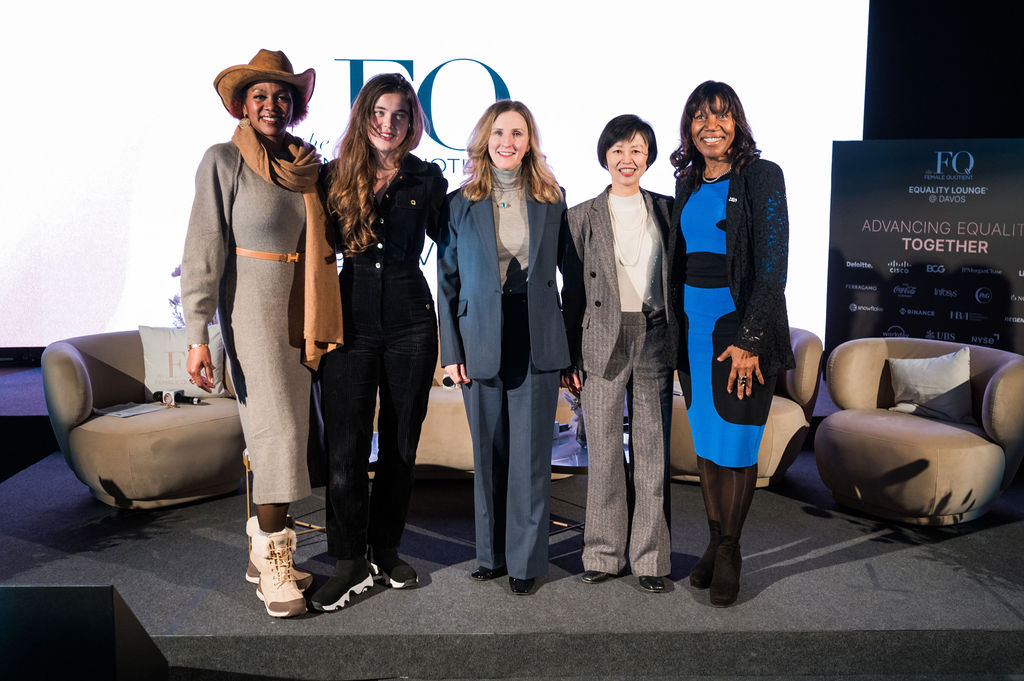
“The results from the survey were shocking,” said Kraft. “Women and men are biologically different, so we need to adapt our approaches. Symptoms that are common in men may not be common in women. But we are still basing our foundational knowledge, diagnoses, and treatments on what is common in men.”
The second panel, held on Tuesday 21 January, was titled “Closing the Gaps: Transforming Women’s Health Through Data and Innovation,” and was moderated by the HBA’s Mary Stutts. The panelists included Oriana Kraft, CEO and Founder, FemTechnology; Paula Bellostas Muguerza, Senior Partner and Global Healthcare & Life Sciences Practice Leader, Kearney; Hannah Perry, Chief Diversity & Culture Officer, Novartis; and Stephanie Sassman, Portfolio Leader, Women’s Health, Roche Genentech. During this conversation, panelists addressed actionable strategies to address disparities and drive systemic change in both healthcare practices and corporate policies.
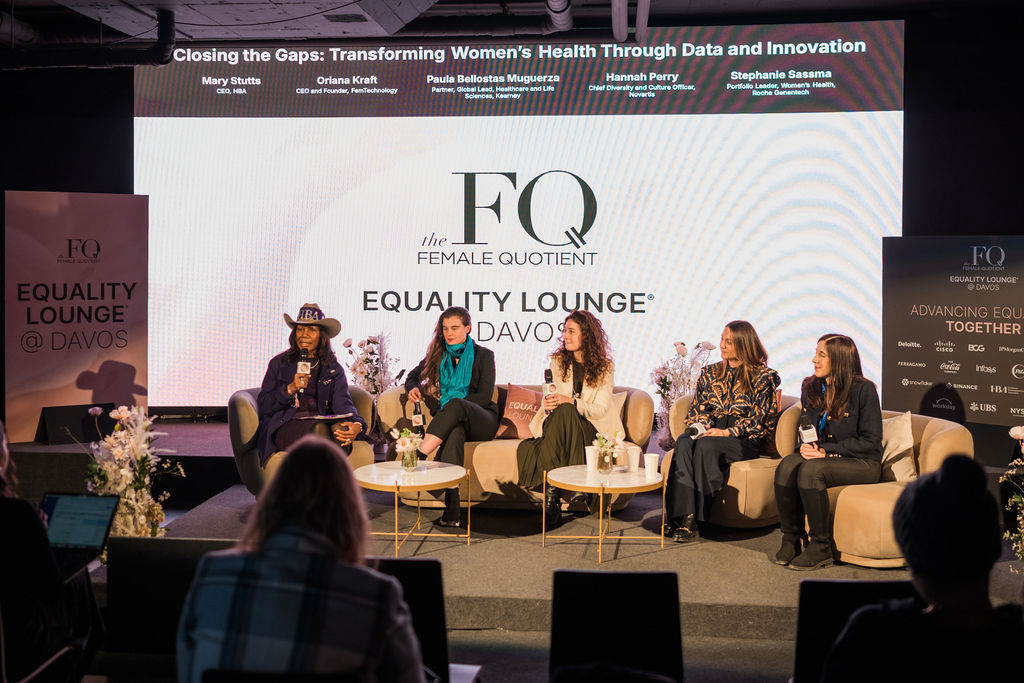
“Large corporate organizations have a massive role to play in how to address these gaps,” said Perry. “There is so much to do. So, the question is where to start on the clinical side and where to start on the workplace side. We should also not underestimate the importance of culture and the importance of inclusive environments. You can ask these questions, but it doesn’t mean women feel safe to answer.”
The third panel, titled “Building Equitable Healthcare Ecosystems: Advancing Inclusion Through Data and Action,” held on Wednesday 22 January, was moderated by Mary Stutts, CEO of the HBA, and included Beth Bovis, Global Lead, Sustainability, Kearney; Karen Hale, Chief Legal Officer, Member of the Executive Committee, Novartis; and Quita Highsmith, Vice President and Chief Diversity Officer, Roche Genentech. The panelists delved into practical ways companies can harness data and implement strategies to create more equitable healthcare ecosystems. They highlighted the importance of cultivating diverse and representative workforces, promoting supplier diversity, and ensuring corporate practices are attuned to the unique needs of diverse patient populations.
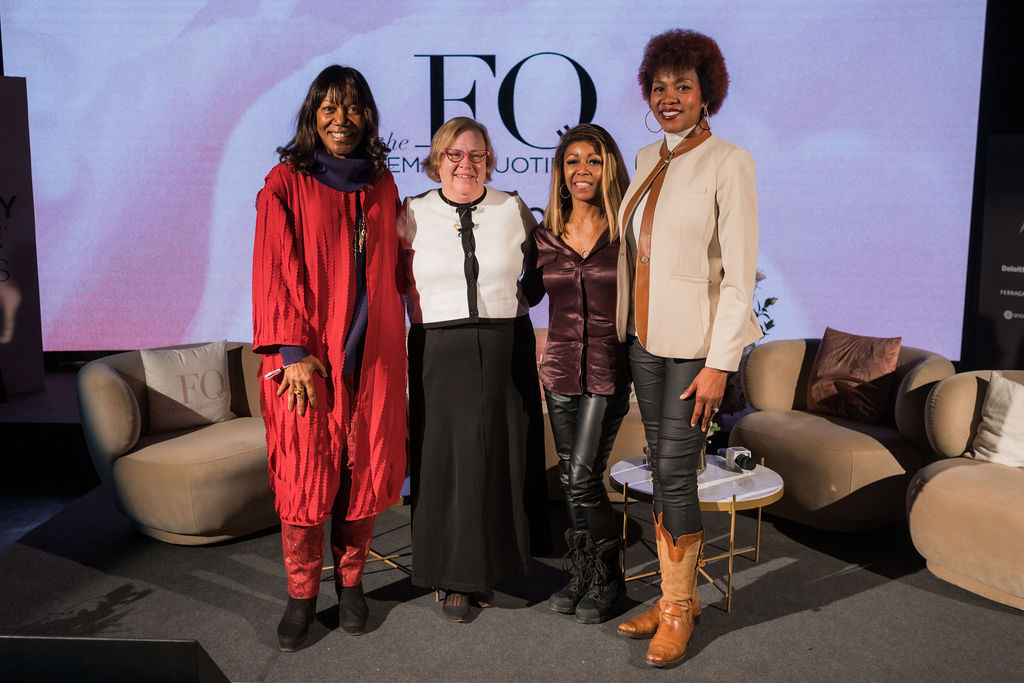
“When I think about the data from the surveys, it helps inform talent strategies,” said Hale. “It also helps to inform the various programs that companies design to attract and retain women and other underrepresented people.”
The fourth and final HBA-hosted panel on 23 January, titled “Healthcare at a Crossroads: Navigating Global Challenges and Data-Driven Leadership for Women’s Health and Wellness,” was moderated by Mary Stutts, CEO, HBA, and included Jim Weiss, Founder and Chairman, Real Chemistry alongside Carol Cruickshank, Partner and Region Chair, Americas, Kearney. The panelists discussed the strategic implications of the findings from the two HBA and FemTechnology surveys and explored how data-driven approaches can help navigate emerging global challenges and trends. Topics discussed include the rise of new therapies and technologies, the evolving landscape of healthcare delivery and access, and the critical role of sustainability and societal health.
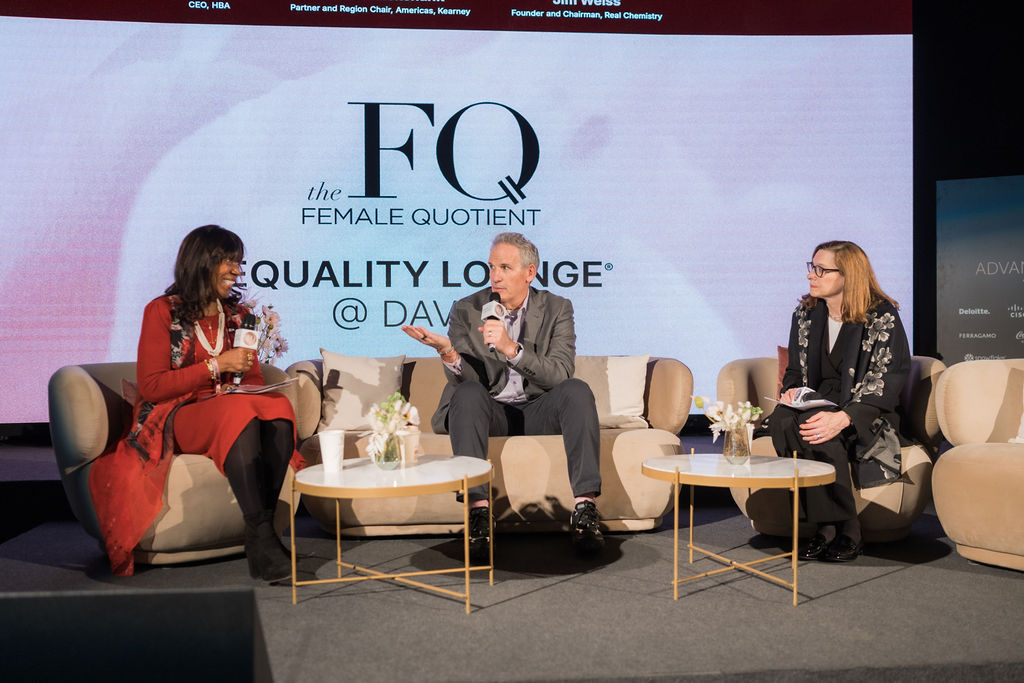
“With all the discussions about equity and bias in data, we were wondering if AI could actually exacerbate these issues,” said Cruickshank. “But what we found is that AI could, in fact, be a path to shrinking inequities. We have a real opportunity to close the gap.”
The HBA is proud to have been a leading voice advocating on behalf of women during this year’s World Economic Forum.
“The HBA is uniquely positioned to bring global healthcare leaders together for critical discussions, like those at the World Economic Forum in Davos, to advance solutions that drive meaningful and lasting change,” said Stutts. “By ensuring women and allies are at the forefront of these conversations, we can help shape a more representative workforce and build a healthier, more equitable future for all.”
We extend our sincere thanks to the Female Quotient for their partnership as well as each of the panelists and the HBA’s corporate partner sponsors that made this possible including BMS, Kearney, Novartis, and Roche Genentech.